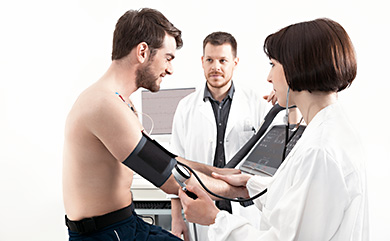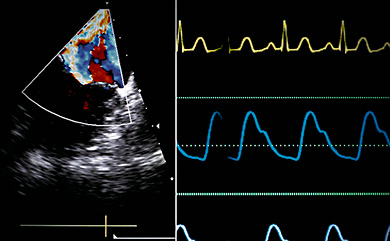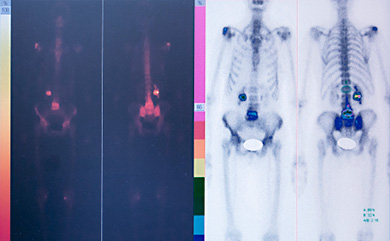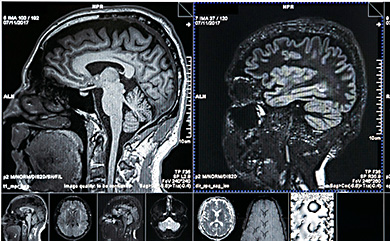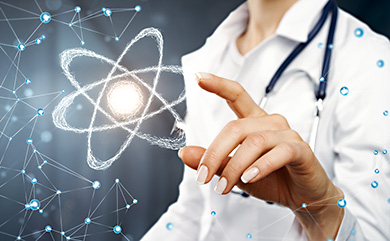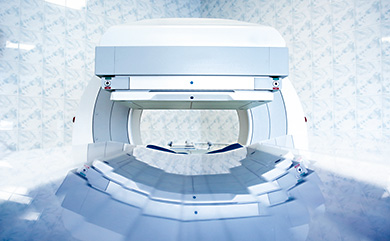Possible Check–Up Options
General Check-upbasic
|
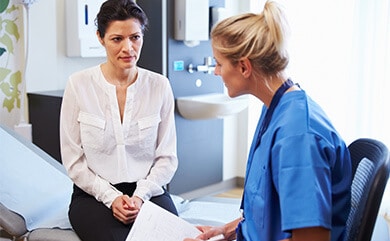
|
- Therapist consultation – Questioning of the patient, medical history study, physical examination, differential diagnostics. Based on the information received, other types of examination are assigned.
- Blood tests – A general blood test, detection of biochemical indicators in full (unfolded) form, hormonal profile, presence or absence of oncomarkers, rheumatoid factor, the presence of C-reactive protein and other markers of pathological processes in the body.
- Urinalysis – A general urine test, specific tests if necessary
- Respiratory tests
- Consultation of a cardiologist – Physical examination, ergometry under physical strain
- Chest Radiography
- Ultrasound and Doppler study
- Ultrasound of the abdominal cavity and small pelvis
- Ophthalmologist consultation – Checking the visual acuity of the retina, measuring intraocular pressure, examining the fundus, testing the visual fields
- Dermatologist consultation – Examination of the skin, the definition of precancerous lesions
- Nutritionist consultation – Based on the results of tests and patient’s history, the specialist offers recommendations for a healthy nutrition plan
- Conclusive (final) consultation – Delivery of medical documents to the patient with the results of the conducted studies, the conclusions of the consultants, the planning of preventive measures / treatment / surgical intervention
Check-Up oncological
|

|
Detection of oncological diseases, consultation with oncology and radiologist, blood tests and blood markers – CEA, Ca 19.9, Ca 125, Ca 15.3, PSA, CPR, general urine analysis, CT of chest, abdominal and pelvic organs, PET-CT and PET -MRI, revision of microscope slides of histology and immunology, MRI with contrast agent, KRAS, Oncotype, Target Now, ultrasound of the thyroid gland and additional studies / tests as needed.
Check-Upfor Women
|

|
Diagnosis and identification of women’s diseases, including gynecology consultation (examination, manual examination, taking a smear from the vagina and cervical scrapings of the PAP smear, vaginal ultrasound of the small pelvis, biopsy with histopathology if required), breast surgeon consultation (mammography for women over 40, breast ultrasound for women under 40), obstetrician gynecologist consultation, cardiologist consultation, blood tests (full blood analysis, full biochemical blood test, oncomarkers, thyroid function, CPR), general urine analysis, thyroid ultrasound and abdominal organs – small pelvis, breast tissue biopsy with histopathology and immunohistology, computed tomography of the abdomen and pelvis, breast MRI, osteodensitometry for the bone density study (for women over 40 years who fall in the group of higher risk of osteoporosis).
Check-UPSpecific Studies
|

|
These are conducted if required or at the request of the patient. Specific tests and checks are exclusively based on the specialist’s recommendations and their necessity for diagnosis, prevention or treatment.
- Gastroenterological Check-up – Examination of the digestive tract. This includes a consultation with gastroenterologist, proctologist, nutritionist, a detailed analysis of blood and urine, analysis for latent blood, muscle fibers, stearin, gastroscopy, colonoscopy, ultrasound of the abdominal cavity and pelvis, biopsy if required, computed tomography of the abdominal cavity and pelvis if required.
- Cardiac Check-up – Examination of the cardiovascular system. This includes a consultation with a cardiologist, vascular surgeon, cardiac surgeon, blood analysis, ECG, ultrasound of the heart, ergometry, daily monitoring (Holter), ultrasound of the vessels of the neck and lower limbs if required, coronary angiography if required, isotope examination of the heart function.
- Nephrological / Urological Check-up – Examination of the urinary and genital systems. This includes a consultation with a nephrologist / urologist, specific blood and urine tests including PSA and urine culture, ultrasound of the abdominal and genitourinary organs, intravenous urography, cystography, kidney scintigraphy, uroflowmetry, isotope bone scan, cystoscopy, isotope kidney function examination, biopsy of the prostate with histopathology, computed tomography of the abdominal cavity and pelvis, TRUS.
- Otorhinolaryngological Check-up – Detection of ENT diseases and pathologies of hearing. This includes a consultation with an ENT specialist, x-ray of the facial sinuses, CT of the head and sinuses, computed tomography and MRI of the face and neck if required, audiogram, tympanometry, laryngoscopy, BERA.
- Ophthalmologic Check-up – The detection of pathologies of vision. Consultation with an ophthalmologist, optometrist, visual acuity and refraction examination, intraocular pressure measurement, retinal and ocular fundus examination, pachymetry (corneal thickness measurement), eye ultrasound, fluorescent eye shots, Optical Coherence Tomography (OCT), Ocular Echobiometry.
- Neuropathological Check-up – Detection of neurological pathology. This includes consultation with a neurologist, a physician from the pain clinic, specific tests, an electroencephalogram (EEG), electromyographic examination of muscle conduction (EMG), CT angiography of the head and neck vessels with contrast material, Transcranial Doppler (TCD), computed tomography and MRI of the head / spine if required, evoked potentials testing.
Endocrinological Check-up – Detection of hormonal disorders. This includes a consultation with an endocrinologist, an expert in diabetes mellitus, comprehensive hormonal profile blood test, ultrasound of the abdominal cavity, ultrasound of the thyroid gland, a biopsy of the thyroid gland if required, bone scintigraphy for detection of osteoporosis, computed tomography of the abdominal organs, isotope examination of the function of hormone producing organs, MRI of the head if required.
- Pulmonary Check-up – Examination of the respiratory tract. This includes a consultation with a pulmonologist, thoracic surgeon, blood tests, spirometry – respiratory function testing, X-ray of the lungs, CT scan of the chest organs if required, bronchoscopy if required, puncture of lungs with biopsy and histopathology of FNA if required.
- Orthopedic Check-up – Examination of the musculoskeletal system. Consultation with an orthopedist, traumatologist, spinal surgeon, blood and urine tests, bone radiography (dynamic), computed tomography and MRI of the spine, MRI of the joints, isotope bone scan, biopsy, diagnostic arthroscopy.
- Genetic Check-up – Detection of genetic pathologies. This includes genetic research, a consultation with a genetics expert, recommendations, and treatment.
- Maternal Check-up – Examination at various stages of pregnancy.


